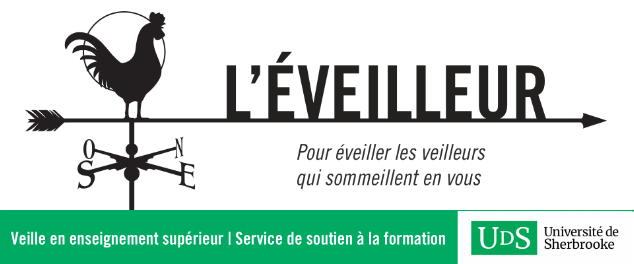Point de vue intéressant de Joshua Cooper Ramo. Ancien journaliste, il est désormais vice-président et co-chef exécutif de Kissinger Associates, la firme de consultation de l’ancien Secrétaire d’État américain Henry Kissinger. Il vient de faire paraître un livre intitulé The Seventh Sense: Power, Fortune, and Survival in the Age of Networks .
D’après lui, ce qui constitue désormais la mesure de la valeur d’un employé, c’est la force de son réseau. Au-delà des réseaux informatiques, il s’agit des groupes auxquels on appartient, auxquels on contribue, etc. Toujours selon Ramo, on embauchait autrefois sur la base des études. Maintenant, c’est sur la base des groupes et alliés que l’on peut mobiliser: « The reality is if you’re hiring somebody today, what you really want to know is, What are they connected to? What ideas can they bring? What networks can they connect to? How robust are their connections? »
Évidemment, cette conception de la “valeur au travail” aura un impact majeur sur la façon d’enseigner et surtout sur ce qu’on devrait leur enseigner:
« How you are looking at students and saying what’s really important is what these kids are connected to, and that ability to establish connections, break connections, enrich connections. That turns out to be more important than walking them through the traditional coursework. Now, some of that traditional coursework may be essential for making those connections, but the goal has got to be not that you’ve gone through an education system and you’ve studied all the things that you’re supposed to study, but rather that you’ve got a set of skills that allow you to make these connections. » (Joshua Cooper Ramo, cité dans Young, 2016)
Ramo convient qu’il est difficile d’enseigner aujourd’hui. Pour lui, le problème est plus profond que le fait que les étudiants préfèrent naviguer sur Facebook que de suivre leurs cours. En fait, il réfléchit sur ce qui amène les étudiants à préférer leur vie virtuelle à ce qui se passe en classe. D’abord, Ramo croit que les professeurs n’ont simplement plus l’autorité morale qu’ils ont déjà eu. Ni eux, ni les médias, ni les universités, ni aucune autre institution d’ailleurs:
« The first problem a professor has in lecturing is he’s in front of a bunch of kids who don’t trust any of the institutions in their lives, to say nothing of the university. That’s one of the reasons we’re seeing this incredible fusion of uncertainty, unrest, instability among undergraduates. We’re trying to figure out where do they fit, how does the university fit into their lives? » (Ramo, cité dans Young, 2016)
Ensuite, les universitaires visent généralement à amener leurs étudiants à comprendre des phénomènes. D’après Ramo, les jeunes ne sont plus intéressés à comprendre, ils veulent simplement savoir où trouver cette information lorsqu’ils en auront de besoin:
« There’s a mismatch between what the professors are trying to get them to do, which is really understanding, and what the kids are trying to do, which is to know it. You can’t fight history — they are moving to a world of knowing, not understanding. I think the right answer to that actually is to talk about the way in which connection changes the nature of the object. To focus on this one question for the students, that they are what they’re connected to. That the depth, the bandwidth that they have between people and ideas turns out to be what’s valuable.» (Ramo, cité dans Young, 2016)
Il me semble que l’on évoque ici un changement de paradigme profond. L’université devra-elle s’adapter pour répondre aux besoins des jeunes? Ou au contraire lutter pour préserver des dimensions plus traditionnelles comme la valeur des individus basée sur leur culture générale et la compréhension profonde des phénomènes?
Source: Young, Jeffrey, « How Colleges Should Adapt in a Networked Age », The Chronicle of Higher Education, 21 septembre 2016






